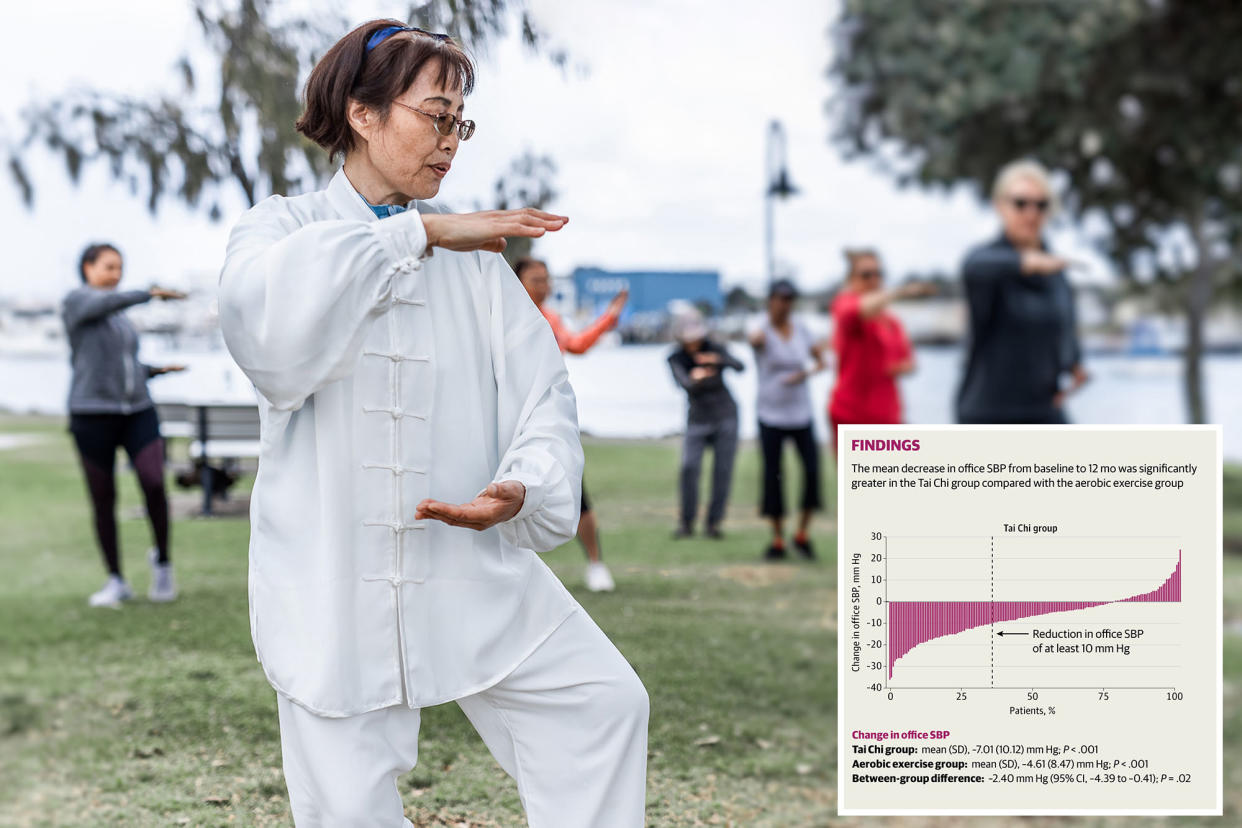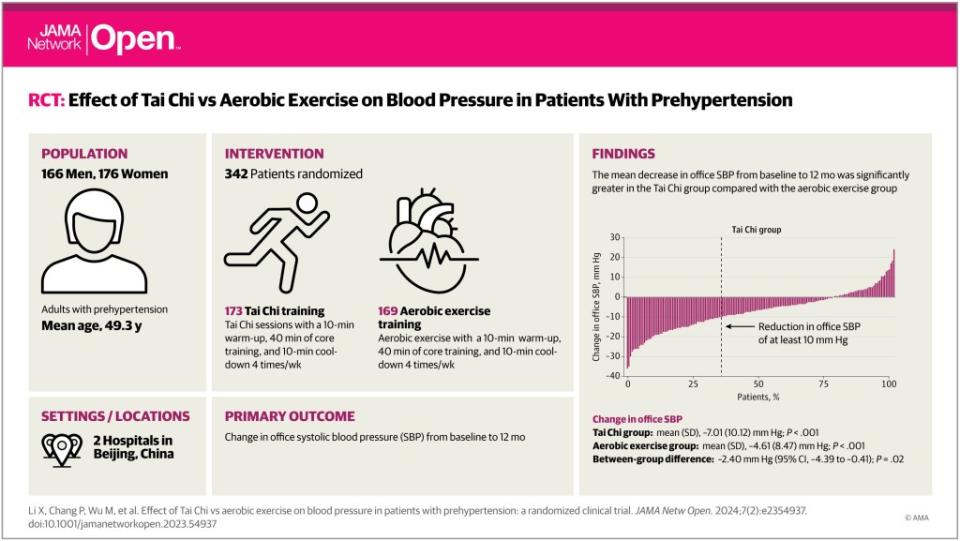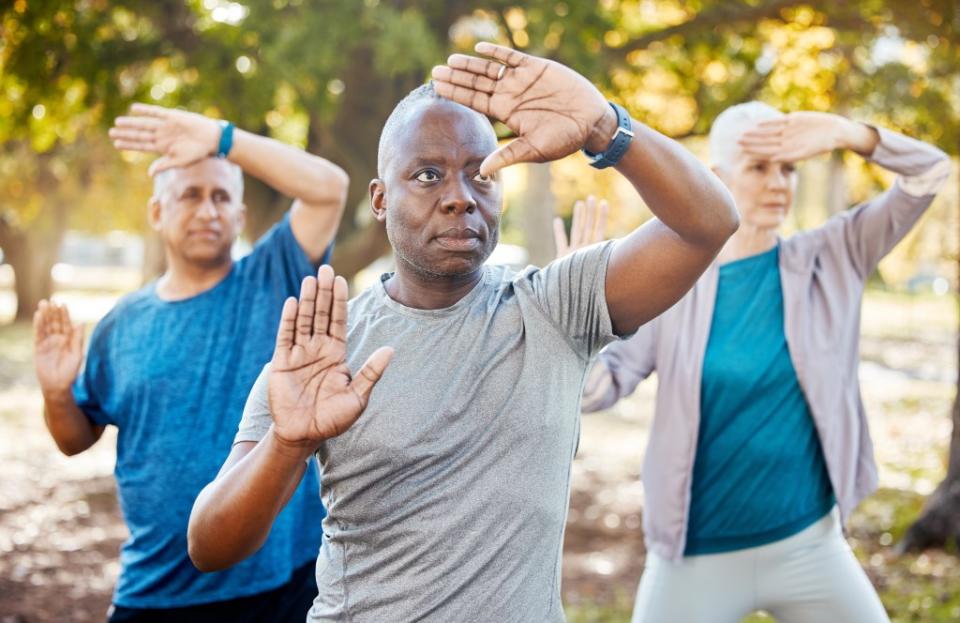Why this popular exercise can lower blood pressure even more than intense cardio

A tai chi exercise a day keeps the blood pressure at bay.
The Chinese martial art form may help to reduce blood pressure and improve heart health even more than intense cardio, according to a study published in JAMA Network Open.
Tai chi is a gentle exercise and moving meditation consisting of sequences of very slow, controlled movements.
The mental and physical health benefits of the practice have long been understood by generations of people looking for a simple and smooth workout, but this study confirmed another important reason to take up the exercise.
The experts suggest that the calming effects of the moving meditation are likely why the low-intensity exercises were shown to be more effective at lowering blood pressure than high-intensity workouts.
A team of doctors and researchers at the China Academy of Chinese Medical Sciences analyzed data from more than 300 people aged 18 to 65 at risk of high blood pressure — known as prehypertension — from across Beijing.
All participants were advised to follow a year-long exercise program four days a week for an hour each day. Half were instructed to do tai chi, and the other half were told to do cardio exercises such as jogging or cycling.

The study found that those who swayed through a tai chi routine had even lower blood pressure and were significantly more likely to report healthy blood pressure than those who worked up a sweat doing cardio.
Those who did tai chi were also more likely to avoid progressing to hypertension.
And it didn’t even take a year: Participants who did tai chi saw more improvements in their blood pressure within the first six months, according to the study.

This isn’t the first research to recommend that adults with high blood pressure may not need to complete the most intense workout to lower their blood pressure.
A study, published in the British Journal of Sports Medicine last October, found that isometric exercises may help reduce blood pressure more effectively than other types of exercise.
Isometric exercises are low-impact workouts that aim to build muscular strength and endurance as the muscles tighten or contract while being held frozen in a steady position for short periods of time.
That would mean holding one position — specifically, a wall sit — is actually better at lowering one’s blood pressure than running, cycling and other forms of cardio.
The analysis found that about eight minutes of isometric exercise three times a week can lead to a healthy reduction in blood pressure.
And you don’t need to attempt anything too intimidating, either. You can start with just taking a seat — but an invisible one.
A wall sit, or simply holding a seated position against a wall, was found to be the most effective exercise for lowering one’s blood pressure.
A regular isometric routine of wall sits — holding for two minutes, resting for two minutes, and repeating that four times — lowered systolic blood pressure by 10 millimeters of mercury (mmHg) and diastolic pressure by 5 mmHg, according to the research.

However, that does not mean that cardio was ineffective.
Aerobic exercises in general — those that increase breathing and heart rate — have been shown to improve blood pressure and heart health.
It is typical for blood pressure to rise and fall throughout the day, but consistently high blood pressure can damage your heart and lead to serious health complications.
Nearly half of adults have hypertension, which puts you at risk for heart disease and stroke — the leading causes of death in the United States.

